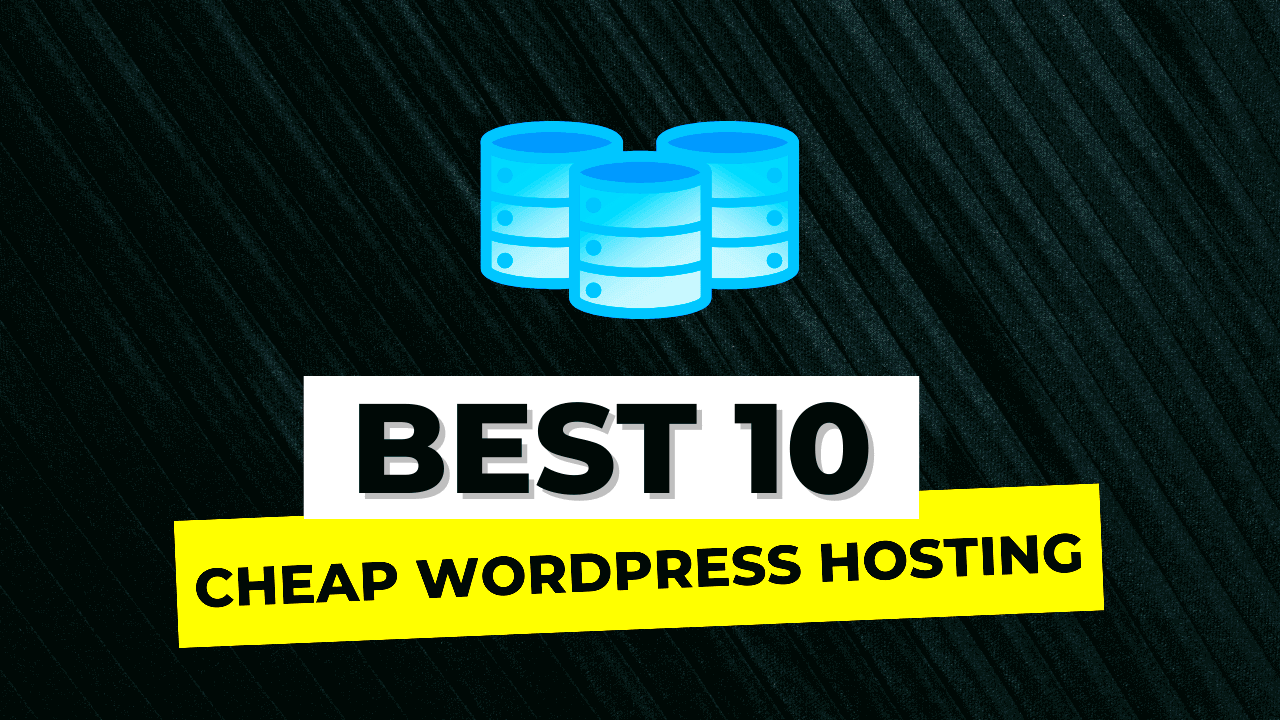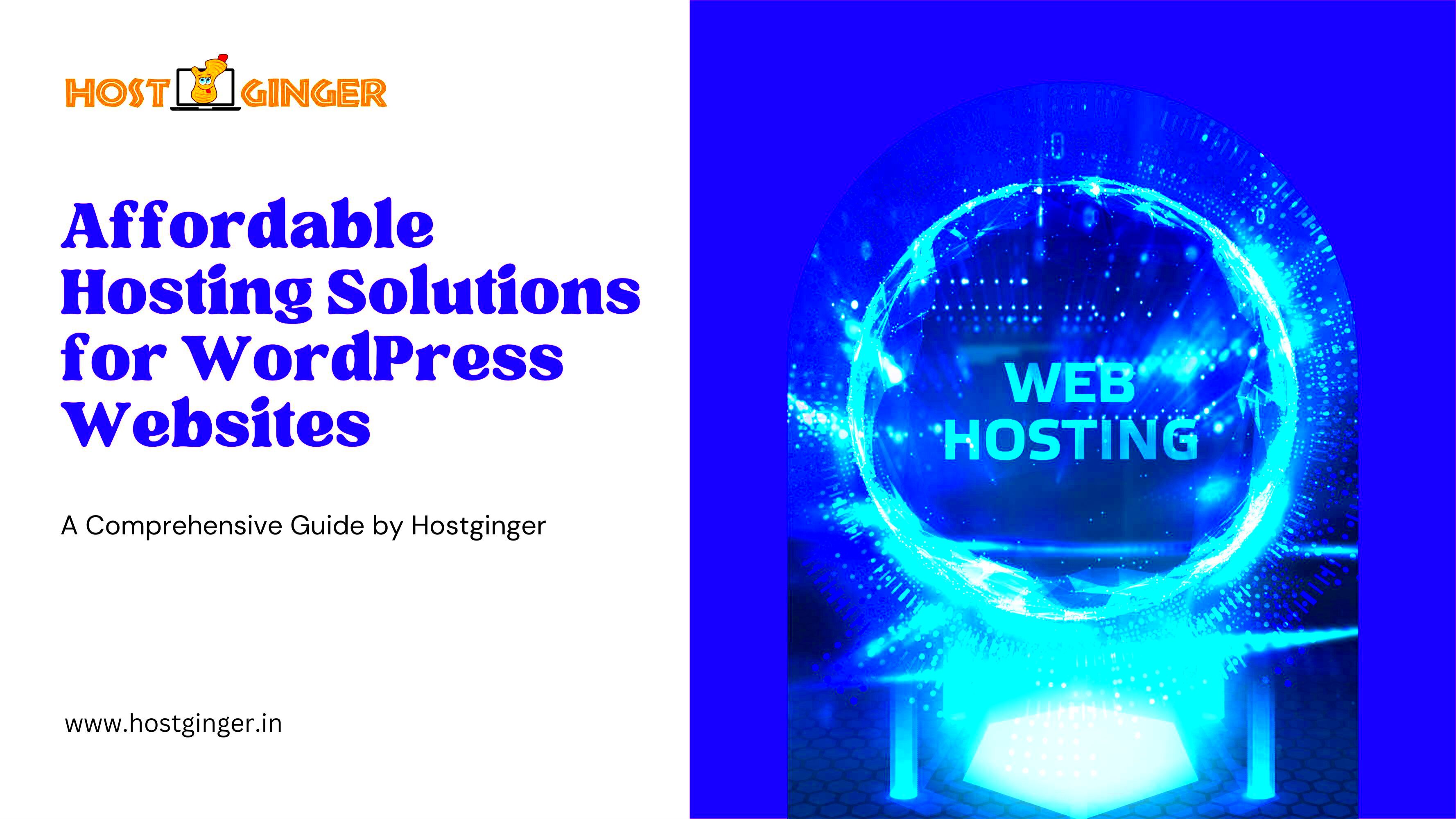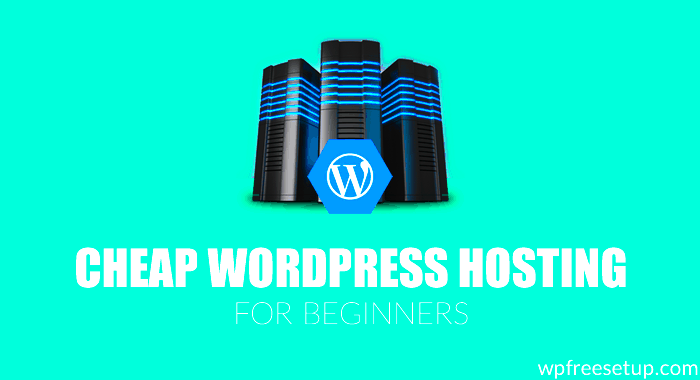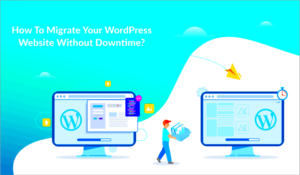Welcome to the world of WordPress hosting! If you’re a beginner looking to start your own blog or website, understanding what WordPress hosting is can seem a bit daunting. Simply put,
Fret not! There are plenty of options out there, especially if you’re on a budget. In this guide, we’ll explore some of the cheapest hosting solutions available, so you can get your site up and running without breaking the bank. Think of it as the first stepping stone on your exciting journey in the online world!
Why Choosing the Right Hosting Matters

So, why is it so crucial to choose the right hosting for your WordPress site? Let’s break it down! Selecting the wrong hosting provider can impact various aspects of your website’s performance and user experience. Here are some key points to consider:
- Website Speed: A slow website can lead to higher bounce rates. Users tend to leave a site that takes too long to load, which can hurt your rankings on search engines.
- Uptime Guarantee: Reliable hosting providers typically offer uptime guarantees of 99.9%. This ensures your site is accessible to visitors almost all the time.
- Customer Support: If you encounter issues, having a responsive support team is vital. Look for hosts that offer 24/7 support.
- Scalability: As your blog grows, you might need to upgrade your hosting plan. Choose a host that allows you to scale easily.
- Security Features: WordPress sites can be prone to security breaches. Look for hosts that offer robust security measures.
In summary, while it might be tempting to pick the cheapest option available, investing in good hosting can pay off in terms of reliability, speed, and ultimately, user experience. Making the right choice now can save you from headaches down the road!
Factors to Consider When Selecting Cheap Hosting

When it comes to selecting a cheap hosting solution for your WordPress website, there are several important factors to consider. While it might be tempting to choose the lowest-priced option right off the bat, doing so without careful consideration may lead to subpar performance and support down the line. Let’s break it down!
- Performance and Speed: Fast loading times are crucial for user experience and SEO. Look for hosting providers that guarantee solid uptime (at least 99.9%) and have optimized servers for WordPress. This ensures your site runs smoothly even with increased traffic.
- Customer Support: As a beginner, having accessible and reliable customer support is vital. Opt for hosts that offer 24/7 support via multiple channels like live chat, phone, and email. Read reviews to gauge the quality of support provided.
- Scalability: Your website might start small, but as it grows, you’ll need more resources. Select a hosting provider that offers flexibility with upgrades. This way, you won’t have to start from scratch if you switch to a more robust plan.
- User-Friendliness: A user-friendly interface can make your hosting experience less daunting. Consider whether the host includes a control panel like cPanel or a custom dashboard that is easy to navigate.
- Security Features: Security is non-negotiable. Look for hosting plans that provide essential features like free SSL certificates, daily backups, and built-in security measures to keep your WordPress site safe from threats.
Taking the time to evaluate these factors will help you find a budget-friendly hosting solution that aligns well with your WordPress needs while providing a solid foundation for growth and success!
Top Cheapest Hosting Solutions for WordPress Beginners

If you’re on the lookout for affordable hosting options specifically tailored for WordPress beginners, you’re in luck! Here’s a curated list of some of the best budget-friendly hosting solutions that won’t break the bank:
| Hosting Provider | Starting Price | Key Features |
|---|---|---|
| Bluehost | $2.95/month | 1-click WordPress install, free domain for 1st year, 24/7 support, 99.9% uptime. |
| SiteGround | $3.99/month | Fast servers, excellent customer support, daily backups, free SSL. |
| Hostinger | $1.99/month | Optimized for speed, user-friendly interface, free SSL, 30-day money-back guarantee. |
| DreamHost | $2.59/month | Free domain, unlimited traffic, custom control panel, 97-day money-back guarantee. |
| A2 Hosting | $2.99/month | Turbo servers for increased speeds, anytime money-back guarantee, free SSL. |
Choosing one of these hosting solutions will not only save you money but also provide the necessary tools and support to help your WordPress site flourish. Make sure to take advantage of any promotional pricing and explore the features offered before making your final decision!
Comparing Features and Pricing
When you’re diving into the world of WordPress, one of the first things to tackle is finding a hosting solution that not only fits your budget but also meets your needs. So, how do you sift through the sea of options? Well, let’s break down the important features and pricing of some of the cheapest hosting solutions available for WordPress beginners.
Here’s a quick comparison table to help you visualize:
| Hosting Provider | Starting Price per Month | Storage | Bandwidth | Free SSL |
|---|---|---|---|---|
| Bluehost | $2.95 | 50 GB | Unmetered | ✅ |
| SiteGround | $3.99 | 10 GB | Unmetered | ✅ |
| Hostinger | $1.99 | 100 GB | Unlimited | ✅ |
| DreamHost | $2.59 | 50 GB | Unmetered | ✅ |
Now, while price is crucial, you also want to consider what you get for that price. Look for:
- Storage space: It’s essential for hosting your website files and media.
- Bandwidth: This dictates how many visitors can access your site at once.
- Free SSL Certificates: Essential for securing your website and boosting SEO.
- Customer support: Check if support is available 24/7 and via various channels.
- Easy WordPress installation: A one-click install feature can save a lot of time.
So, take your time comparing these features alongside the pricing, and make sure you choose the best hosting plan that not only fits your budget but also equips you with the tools you need to succeed on your WordPress journey.
Pros and Cons of Budget Hosting Solutions
Budget hosting solutions are incredibly appealing for WordPress beginners looking to get their websites off the ground without breaking the bank. However, just like anything else, there are both pros and cons to consider before making a decision.
Pros:
- Affordability: Obviously, the biggest draw is the price. You’ll find hosting plans that can be as low as $1.99 a month!
- Basic Features: Most budget hosts still provide essential features like free SSL certificates, easy installation, and customer support.
- Scalability: Many budget hosts offer solutions to easily upgrade your plans as your website grows.
- 30-Day Money-Back Guarantee: Many providers offer this, allowing you to test the waters risk-free.
Cons:
- Limited Resources: Cheap plans often come with restrictions on storage and bandwidth, which might limit your website’s growth.
- Slower Performance: You may experience slower loading times, which can impact user experience and SEO.
- Less Customer Support: Some budget hosts have lower-quality support, which might leave you frustrated when issues arise.
- Renewal Rates: The initial low price sometimes increases significantly upon renewal, leading to unexpected expenses.
In summary, while budget hosting solutions can be a great starting point for WordPress beginners, it’s essential to weigh these pros and cons to ensure you’re making an informed decision. Happy hosting!
How to Migrate to a Cheap Hosting Provider
Migrating to a new hosting provider can seem daunting, especially if you’re making the switch to a more affordable option. But don’t worry! With the right steps, you can make the transition smooth and fuss-free. Here’s a simple guide to help you through the migration process:
- Choose Your New Host: Start by selecting a cheap hosting provider that meets your needs. Try to assess factors like bandwidth, storage, technical support, and user reviews. Make sure they are WordPress-friendly!
- Back Up Your Website: Before making any changes, it’s essential to back up all your website files and your database. You can do this manually via FTP or by using plugins like UpdraftPlus or Duplicator.
- Set Up Your New Hosting Account: Once you’ve signed up with the new hosting provider, set up your domain and WordPress installation. Many hosting services offer one-click installations, making this step pretty easy.
- Transfer Files: Using your favorite FTP client, connect to your old host to download your website files. Then, upload these files to your new hosting account.
- Import Your Database: Export your old database through your hosting control panel, then import it into the new server’s database. This process might differ slightly based on your hosting provider’s interface.
- Update DNS Settings: After ensuring everything is set up correctly, update your DNS settings to point to your new hosting provider. This step can take up to 48 hours to propagate worldwide.
- Test Your Site: Once the DNS has propagated, thoroughly test your website. Make sure pages load correctly, images appear, and links function properly. If everything checks out, congratulations—you’ve successfully migrated!
By following these steps, transitioning to a cheaper hosting provider doesn’t have to be a headache. Prepare yourself for a smoother experience by having a plan in place!
Tips for Optimizing Performance on Budget Hosting
Optimizing your website’s performance is crucial, even when you’re using a budget hosting solution. Fortunately, there are plenty of effective ways to get the most out of your hosting plan without breaking the bank. Let’s dive into some practical tips to enhance your website’s speed and performance:
- Choose a Lightweight Theme: Opt for a WordPress theme that is optimized for performance. Themes like Astra or GeneratePress are known for their speed and simplicity.
- Utilize Caching Plugins: Caching plugins, such as WP Super Cache or W3 Total Cache, can significantly improve your site’s loading times by storing static versions of your pages, reducing the load on your server.
- Optimize Images: Save bandwidth by compressing images. Use plugins like Smush or EWWW Image Optimizer to ensure your images are optimized for faster loading.
- Minimize the Use of Plugins: Each plugin you install can slow down your site. Evaluate your current plugins and eliminate any that aren’t necessary.
- Enable GZIP Compression: This feature compresses your website’s files before they’re sent to the visitor’s browser, speeding up load times. Most caching plugins enable this by default.
- Use a Content Delivery Network (CDN): A CDN distributes your content across multiple servers globally, reducing load times regardless of the user’s location. Free options like Cloudflare are a great starting point.
- Regularly Update WordPress: Keeping your WordPress installation, themes, and plugins up-to-date not only ensures security but can improve performance through enhancements in new versions.
By implementing these optimization tips, you can significantly improve your website’s performance even while operating on a budget hosting plan. A little effort goes a long way in crafting a speedy, user-friendly experience for visitors, which can ultimately lead to better engagement and satisfaction!
Cheapest Hosting Solutions for WordPress Beginners
When starting a new WordPress website, especially for beginners, choosing a cost-effective hosting solution is essential. Budget-friendly hosting can significantly impact your ability to develop your site without overspending. Here are some affordable hosting options that cater specifically to WordPress beginners:
- Bluehost
- Starting at $2.95/month.
- Officially recommended by WordPress.org.
- Free domain for the first year.
- SiteGround
- Starting at $3.99/month.
- Excellent customer support.
- Free daily backups and SSL certificate.
- Hostinger
- Starting at $1.99/month.
- Fast performance with optimized WordPress services.
- Free domain and SSL included.
- DreamHost
- Starting at $2.59/month.
- Flexible pricing plans with a 97-day money-back guarantee.
- Free domain included for a year.
When selecting the right hosting provider, consider factors such as uptime reliability, customer support, and scalability options. It’s also crucial to read customer reviews and take advantage of any trial periods available to ensure the hosting meets your specific needs as a beginner.
Conclusion: Finding the best value for your needs involves assessing your budget against essential features, which can systematically help you make an informed decision when selecting hosting for your WordPress site.



